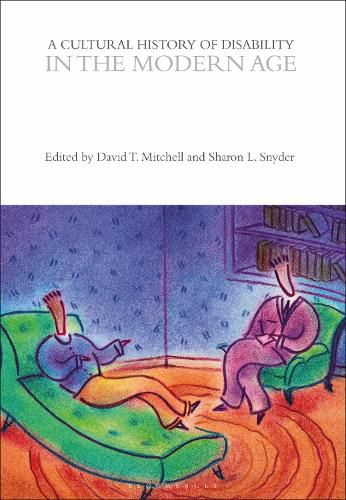Readings Newsletter
Become a Readings Member to make your shopping experience even easier.
Sign in or sign up for free!
You’re not far away from qualifying for FREE standard shipping within Australia
You’ve qualified for FREE standard shipping within Australia
The cart is loading…






If eugenics – the science of eliminating kinds of undesirable human beings from the species record – came to overdetermine the late nineteenth century in relation to disability, the twentieth century may be best characterized as managing the repercussions for variable human populations. A Cultural History of Disability in the Modern Age provides an interdisciplinary overview of disability as an outpouring of professional, political, and representational efforts to fix, correct, eliminate, preserve, and even cultivate the value of crip bodies. This book pursues analyses of disability’s deployment as a wellspring for an alternative ethics of living in and alongside the body different while simultaneously considering the varied social and material contexts of devalued human differences from World War I to the present. In short, this volume demonstrates that, in Ozymandias-like ways, the Western Project of the Human with its perpetuation of bodymind hierarchies lies crumbling in the deserts of failed empires, genocidal furies, and the rejuvenating myths of new nation states in the 20th century.
An essential resource for researchers, scholars and students of history, literature, culture, philosophy, rehabilitation, technology, and education, A Cultural History of Disability in the Modern Age explores such themes and topics as: atypical bodies; mobility impairment; chronic pain and illness; blindness; deafness; speech; learning difficulties; and mental health while wrestling with their status as unreliable predictors of what constitutes undesirable humanity.
$9.00 standard shipping within Australia
FREE standard shipping within Australia for orders over $100.00
Express & International shipping calculated at checkout
If eugenics – the science of eliminating kinds of undesirable human beings from the species record – came to overdetermine the late nineteenth century in relation to disability, the twentieth century may be best characterized as managing the repercussions for variable human populations. A Cultural History of Disability in the Modern Age provides an interdisciplinary overview of disability as an outpouring of professional, political, and representational efforts to fix, correct, eliminate, preserve, and even cultivate the value of crip bodies. This book pursues analyses of disability’s deployment as a wellspring for an alternative ethics of living in and alongside the body different while simultaneously considering the varied social and material contexts of devalued human differences from World War I to the present. In short, this volume demonstrates that, in Ozymandias-like ways, the Western Project of the Human with its perpetuation of bodymind hierarchies lies crumbling in the deserts of failed empires, genocidal furies, and the rejuvenating myths of new nation states in the 20th century.
An essential resource for researchers, scholars and students of history, literature, culture, philosophy, rehabilitation, technology, and education, A Cultural History of Disability in the Modern Age explores such themes and topics as: atypical bodies; mobility impairment; chronic pain and illness; blindness; deafness; speech; learning difficulties; and mental health while wrestling with their status as unreliable predictors of what constitutes undesirable humanity.